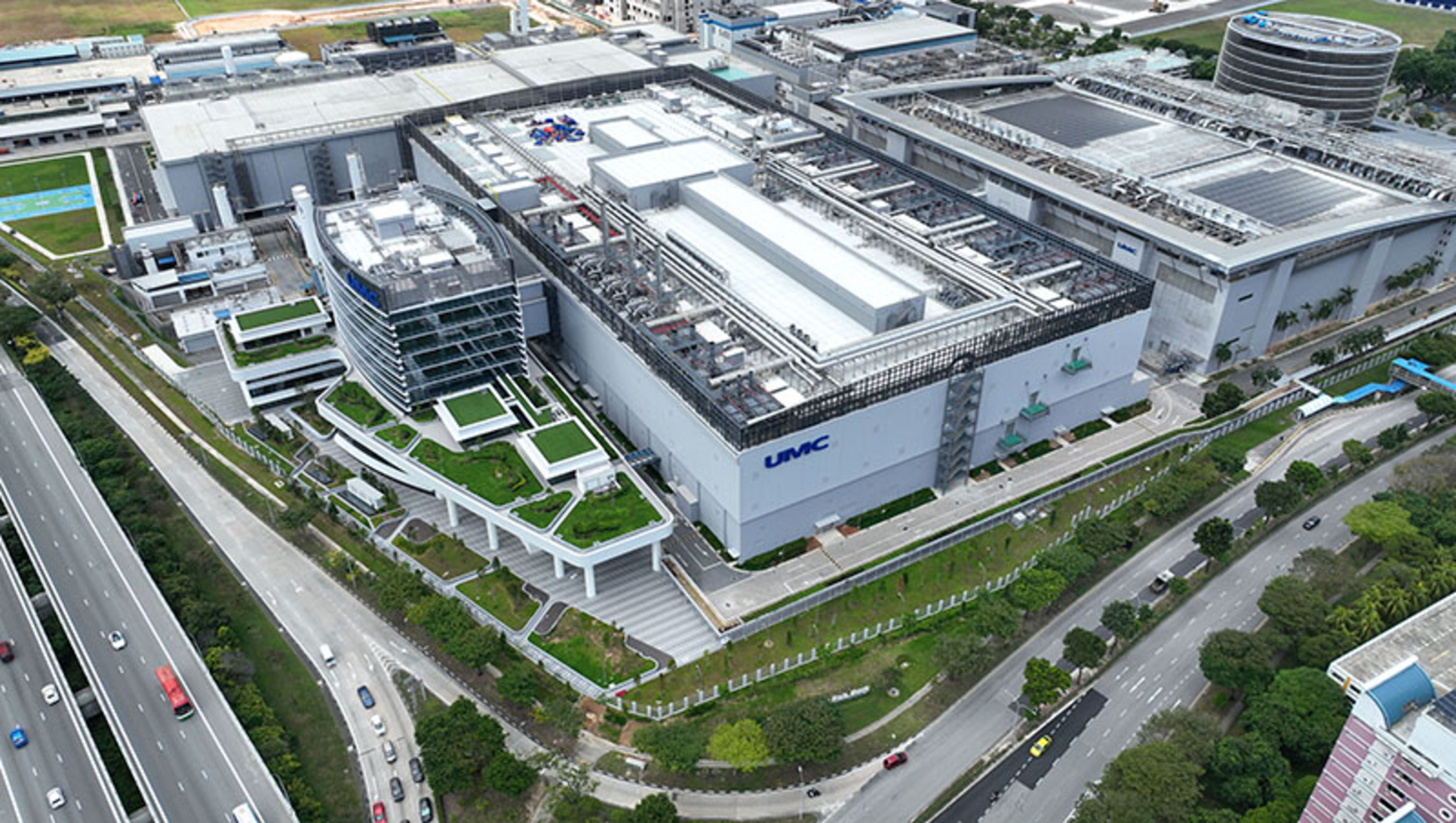SINGAPORE: Taiwanese chipmaker United Microelectronics Corp’s (UMC’s) newly opened US$5 billion (S$6.7 billion) wafer fabrication facility in Pasir Ris, Singapore, is set to create around 700 jobs in areas like process and equipment engineering and research and design (R&D) over the next few years.
The new fab covers 111,800 square metres (sq m) next to UMC’s existing facility in Pasir Ris Wafer Fab Park. The total site area in Singapore will be 197,800 sq m.
UMC also said in its statement released on Tuesday (April 1) that the new facility will be equipped with 17,949 sq m of solar panels on its rooftop. Besides the manufacturing site, the expansion will also feature a new office building, a full-sized multipurpose sports hall, and various amenities for employees and the local community.
The Taiwanese semiconductor foundry said the investment will help bring the first phase of development to a full capacity of 30,000 wafers per month. Large-scale production is expected to start in 2026, increasing UMC’s total production in Singapore to over one million wafers a year.
UMC, like other foundries, manufactures chips for other companies.
Thomas Tey, UMC Singapore’s senior fab director, told The Straits Times that the new facility will focus on producing advanced chips to meet the growing demand for semiconductor chips amid rising competition. Mr Tey noted that the existing fabrication runs on 40-nanometre (nm) technology and faces competition with other countries like China. He said, “For this new expansion, we extend our technology down to 22-nanometre.”
Previously announced in February 2022, the new facility will produce 22nm and 28nm chips for communication, Internet of Things (IoT) and automotive use, said UMC. It will include premium smartphone display chips, power-efficient memory for IoT devices, and next-generation connectivity chips.
“Semiconductors will be essential to support the drive towards greater connectivity, data processing and electrification. With AI (artificial intelligence), 5G and the Internet of Things expected to transform the way we live, work and play, there will be more electronic devices as well as higher semiconductor content in each device,” said Deputy Prime Minister and Trade and Industry Minister Gan Kim Yong at the opening ceremony of the new facility on Tuesday (April 1).
He added that these devices will need more advanced semiconductors that combine computing power with specialised features like power management, embedded non-volatile memory, and data conversion. He also noted how critical win-win partnerships, like the one with UMC, are today.
According to him, Singapore’s firm commitment to long-term planning, infrastructure investments, a pro-business environment, strong rule of law, and openness to trade, investment, and talent has defined the city-state’s approach to economic growth and development over the decades. “These fundamentals define our value as a consistent, trustworthy and reliable partner to global companies such as UMC,” he said.
When asked why the company expanded in Singapore, UMC’s Mr Tey highlighted the government’s transparency, openness, and stability, as well as the absence of natural disasters, unlike Taiwan.
UMC president Shan Chieh Chien said the new facility’s 22nm technology will improve visual quality and battery life in smartphones. “Soon, those chips will be made right here in Singapore, powering screens worldwide. Beyond manufacturing, Singapore is home to UMC’s largest research and development team outside Taiwan,” he said, noting their collaborations with A*Star and the Institute of Microelectronics.
UMC employs over 1,800 people in Singapore, most of whom are local staff. The Singapore fab produces 14% of UMC’s global output, with the majority coming from Taiwan (62%) and the rest from China (15%) and Japan (9%).
The Straits Times reported that an Economic Development Board (EDB) spokesperson described Singapore as a critical node in the semiconductor supply chain, producing one in ten chips and one-fifth of global semiconductor equipment. EDB said that over the past two years, Singapore has attracted more than S$18 billion in R&D and manufacturing investments for its semiconductor industry, which will create more business and job opportunities. /TISG
Featured image by Depositphotos (for illustration purposes only)
